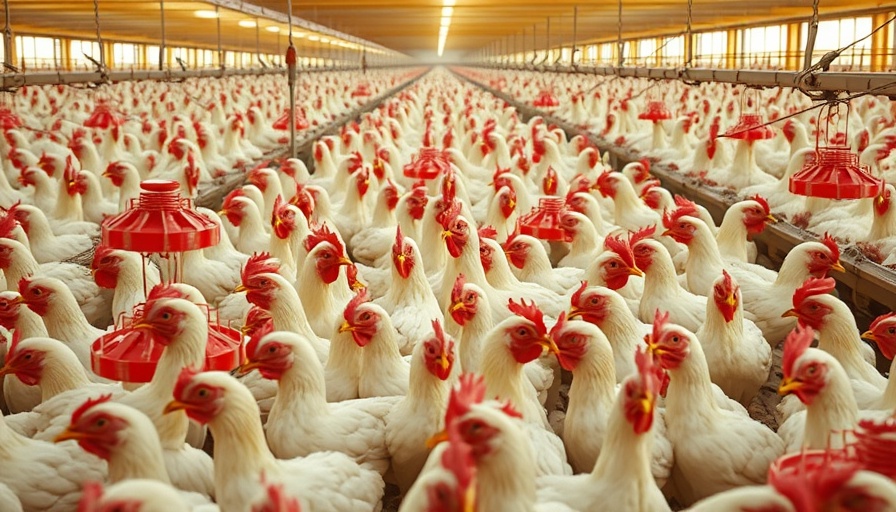
The Grave Economic Threat of Animal Disease Outbreaks
In a stark warning, the World Organisation for Animal Health (WOAH) has projected that animal disease outbreaks, particularly fueled by antimicrobial resistance (AMR), could disrupt global trade to the tune of $100 trillion by 2050. This alarming forecast stems from a comprehensive report that underscores the urgent necessity for action to combat AMR, especially as the ramifications of outbreaks become increasingly pronounced in international trade.
Global Trade and Supply Chain Vulnerabilities
The recent avian influenza outbreak in Brazil has thrown the fragility of international food supply chains into sharp relief. Brazil, known as the largest poultry exporter globally, saw immediate export bans from numerous countries following the discovery of the highly pathogenic avian influenza (HPAI) within its borders. This incident isn't an isolated one; over the past two decades, more than 633 million birds have been lost to such outbreaks, incurring enormous economic damage and severely disrupting trade.
Impact on Food Security
Antimicrobial resistance poses a dual threat to global food security and economic cohesion. The report cites that approximately 2 billion people are at risk of food insecurity due to diseases that antimicrobial use could have mitigated. Although there has been a commendable 5% decrease in antimicrobial use in animals between 2020 and 2022, the decline remains inadequate in addressing the severity of AMR. Regions like Europe and Africa have made notable strides, but the pace of progress must accelerate significantly to avert disaster.
Economic Ripple Effects on Exporters and Consumers
The repercussions of these animal diseases extend beyond the affected animals themselves. Trade barriers enforced in response to outbreaks create a domino effect; poultry exporters lose access to critical international markets while importing nations wrestle with supply shortages. This imbalance can lead to elevated prices for consumers, with low-income populations—who often rely on poultry as a primary protein source—particularly vulnerable. Observing how swiftly trade restrictions arise highlights just how interconnected our global trade networks are and emphasizes the importance of maintaining healthy animal populations.
A Thorny Path Ahead: Future Predictions and Challenges
The trajectory of animal health in connection with global trade appears precarious unless we collectively tackle the challenge of AMR. Experts like Javier Yugueros-Marcos, head of the antimicrobial resistance department at WOAH, stress that the indiscriminate use of antimicrobials is a detrimental practice that must be curtailed. The data shows that over 943 poultry outbreaks and significant cases in mammalian species have been recorded in recent years, foreshadowing potential widespread implications for global health and economic stability.
Actionable Insights for Import-Export Companies
For import-export companies navigating these turbulent waters, fostering a resilient supply chain is paramount. Companies should consider adopting best practices in biosecurity measures, collaborating with regulatory bodies for compliance, and investing in sustainable farming practices that align with global health goals. Moreover, raising awareness about antimicrobial use and its consequences should be integrated into training and operational protocols.
In conclusion, the warnings outlined in WOAH's report echo a call to arms for all stakeholders in the global trade ecosystem. Investing in health, research, and sustainable practices today could yield significant long-term benefits, potentially safeguarding against the dire predictions of emerging animal diseases crippling the economic landscape.
Call to Action: To learn more about how you can protect your business and contribute to sustainable practices in trade, visit our website for resources and expert insights.
 Add Row
Add Row  Add
Add 




 Add Row
Add Row  Add
Add 

Write A Comment